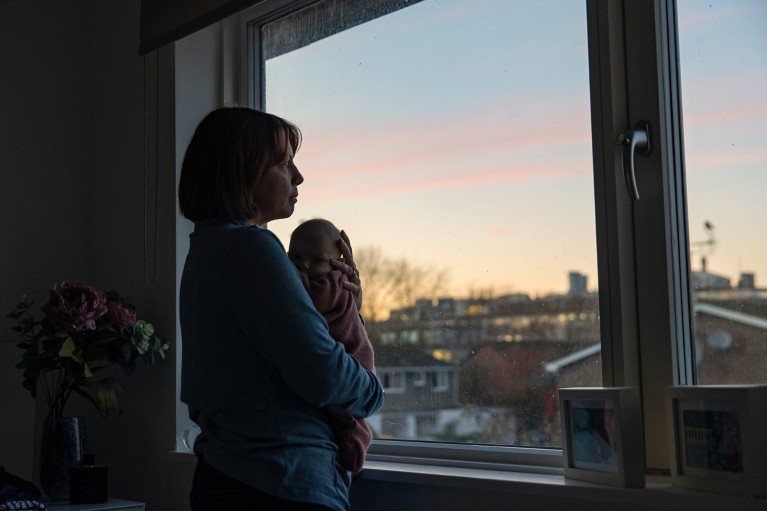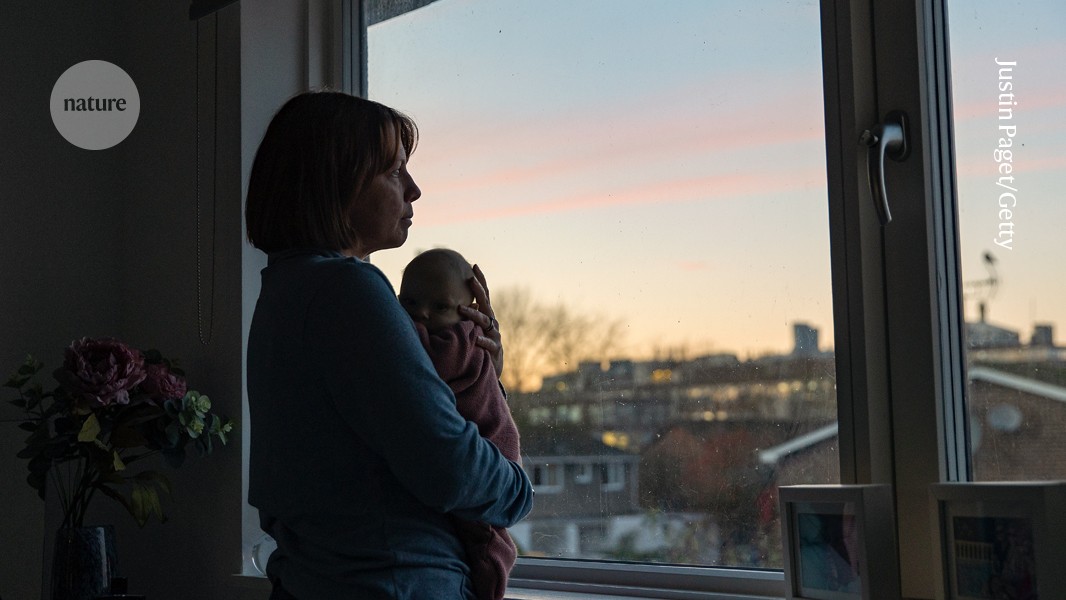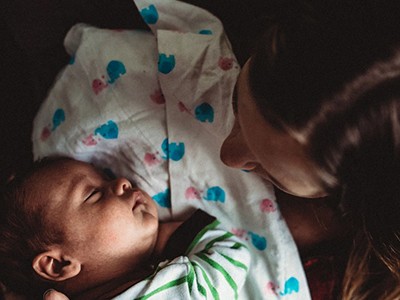
An artificial-intelligene screening tool flags people at high risk of postpartum depression. Credit: Justin Paget/Getty
A new machine-learning tool can predict which individuals are at high risk for developing postpartum depression, an often-debilitating condition that affects 17% of people giving birth worldwide1. The tool could help to identify new parents who would benefit the most from preventive care.
Postpartum depression causes intense feelings of sadness, anxiety or despair that can occur up to one year after having a baby. Parents who had given birth and who were flagged by the model as having a high risk of the condition were three times more likely to develop it than the average parent in the study. The model was described in a paper published today in the American Journal of Psychiatry.
“If we know that someone’s at higher risk, we might try to develop strategies to help prevent depression,” says Roy Perlis, a psychiatrist at Mass General Brigham, in Boston, and a co-author of the study. Preventative measures include some types of therapy and stress-management strategies, he says.
An unmet need
To develop and validate the model, researchers relied on data including electronic health records and a postpartum depression screening scores, from more than 29,000 people who gave birth in the United States between 2017 and 2022. They excluded people with a history of depression one year before delivery, who are known to be at an increased risk for the condition. Data from about half the people were used to train the model and the other half, to validate the tool in an independent group.
How pregnancy transforms the brain to prepare it for parenthood
Of the people that the model flagged as having a high risk of postpartum depression, 30% went on to develop the condition. Perlis acknowledges that the model has shortcomings, but says that an imperfect tool is still useful. “Even some degree of prediction can be helpful because we simply don’t have the resources to give everyone the follow-up care that we wish we could as far as postpartum mental health,” he says.



